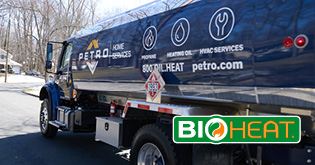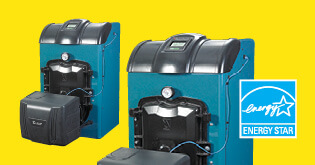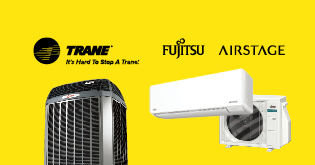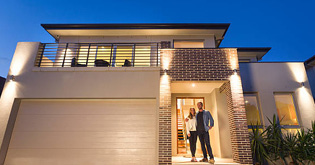- My Account:
- Sign In
- Register
- Make Payment

Carbon monoxide safety tips: Carbon monoxide detection and carbon monoxide poisoning prevention
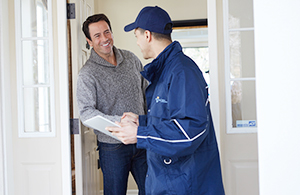
Learn about the silent killer - carbon monoxide. Your source for carbon monoxide safety, including an emergency action plan to follow if you suspect CO is present in your home.
What is the definition of carbon monoxide?
Carbon monoxide (CO) is a colorless, odorless, tasteless, and toxic gas. Smoking a cigarette; idling a gasoline engine; and burning fuel oil, wood, kerosene, natural gas, and propane all produce CO. High levels of CO can be produced when fuels are burned incompletely.
Where do high levels of CO come from?
High levels of carbon monoxide (CO) can be generated by appliances that are defective or improperly installed or maintained. CO can also enter a home if an appliance venting system or chimney becomes blocked (for example, by a bird's nest). This is why it’s tremendously important part of winter safety to have your heating system regularly tuned up, and to have your chimney swept annually as well.
Carbon monoxide can be deadly.
High levels of carbon monoxide can make you dizzy, give you headaches, or cause flu-like symptoms In extreme cases of carbon monoxide poisoning, high levels of or extended exposure can result in brain damage or death. Young children; the elderly; people with heart disease; and those under the influence of alcohol, drugs, or medication are particularly susceptible to carbon monoxide poisoning.
Symptoms of carbon monoxide poisoning include.
- Headache
- Dizziness
- Shortness of breath
- Nausea
- Fatigue
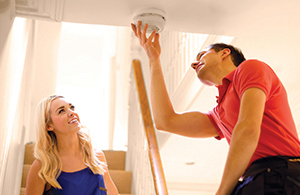
Carbon monoxide detectors can improve safety, but beware of myths.
Carbon monoxide detectors or alarms are designed to sound an alarm when they sense excessive levels of CO in the air. We recommend that you consider installing a CO detector listed by UL on each level of your home. Be sure to follow the manufacturer's instructions regarding installation, location, and maintenance. These devices can provide an extra measure of safety. A common myth is that CO is heavier than air and therefore you should install your carbon monoxide detectors lower on you wall. The reality is that CO is heavier than the air we breathe and therefore the proper installation of carbon monoxide detectors is on the ceiling.
If you suspect that CO is present, act immediately.
- If you or a family member shows physical symptoms of carbon monoxide poisoning, get everyone out of the building and call 911 or your local fire department.
- If it is safe to do so, open windows to allow entry of fresh air, and turn off any appliances you suspect may be releasing the harmful CO gases.
- If no one has physical symptoms of CO poisoning, but you suspect that CO is present, call your propane retailer or a qualified service technician to check CO levels and your propane equipment.
How to prevent carbon monoxide poisoning: What can you do to help reduce the risk of CO poisoning?
- Have a qualified service technician check your propane appliances and venting systems annually, preferably before the heating season begins.
- Install UL-listed CO detectors on every level of your home.
- Never use a gas oven or range-top burners to provide space heating.
- Never use portable heaters indoors, unless they are designed and approved for indoor use.
- Never use a barbecue grill (propane or charcoal) indoors for cooking or heating.
- Regularly check your appliance exhaust vents for blockage
Signs of improper appliance operation that can generate high CO levels.
- Sooting, especially on appliances and vents
- Unfamiliar or burning odor
- Increased moisture inside of windows
Learn more from Petro Home Services
Petro is your resource for more tips and facts on indoor air quality and how to improve indoor air quality. As always, if you have any questions or concerns about the safety of your home heating system, please contact us immediately at 1.800.645.4328 and have one of our qualified technicians take a look at it as soon as possible.
Petro Home Services is proud to not only serve communities in DC, CT, MA, MD, NJ, NY, PA, and RI but we also proudly acknowledge the skills and experience of our expert team behind all resources. With insights on topics ranging from heating oil facts to common air conditioning questions, you can rely on Petro Home Services for facts and information to help you understand more about your heating, cooling and home comfort needs. This article and all articles on the Petro Home Services website have been approved by our team of home service experts.

